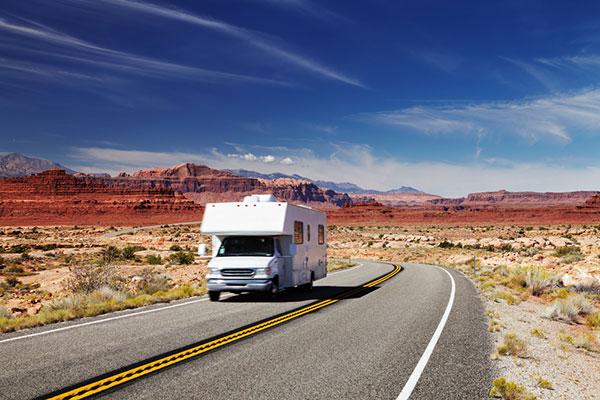
FAQs About RV Insurance
Tuesday, August 23, 2016
Whether it’s your home on the road or you just use it for weekend getaways, owning an RV can be a great pathway to adventure for you and your family. As with any adventure, there are several things you want to consider before your journey begins. If you own an RV, one of the most important things to take into account is if you have proper insurance on your vehicle. To assist you in assessing your RV insurance needs, here are some FAQs about insurance on recreational vehicles.
How does RV Insurance differ from Auto Insurance?
With Motorhomes, the essential coverage isn’t very different from auto insurance. You’ll need to maintain liability and will most likely want to add insurance for physical damage to the RV to cover any damage done to the vehicle itself. With fifth wheels or trailers, the liability on the RV has to be covered by the vehicle that tows the RV. If a vehicle you own and insure is towing your trailer or 5th wheel, your automobile insurance will most likely extend to any trailer that you own. For RV insurance, carriers often have additional coverages designed specifically for RV travelers such as additional liability options, coverage for your personal belongings, and extended roadside options, but these coverages vary based on the insurance company.
Should I cancel my RV Insurance once the season is over?
While it is possible for you to do this, it’s not always the smart option. If you cancel coverage on your RV when you’re not using it, the RV will have no coverage for anything that may happen to it while in storage. It may be tempting to try and save a few dollars, but unexpected disasters like fires, floods, and theft can put you in a tight spot if you have canceled your coverage during the off-season. Many carriers have options for lower limits of coverage specifically designed for the off-season. Lowering your coverage during those months is an excellent alternative to canceling your policy. This option allows you to keep the coverage you need while not using the RV but to temporarily remove any coverage that you don’t need during the off-season.
Does it make a difference if I live in my RV?
Absolutely! If your RV doubles as your home, many new risks can come into play. If your RV is permanently parked and on blocks, you need a different type of insurance policy than if you live in your RV but still use it to travel. Standard RV insurance may not be suitable to cover all your insurance needs if you’re living in your RV. Another potential issue is that if you file a claim, and your insurance company did not know that your RV doubled as your residence, your insurance company could deny your claim.
We’ve touched on a few key concerns regarding RV insurance, but it is important to check with your agent before making any assumption or decision about your policy. There are many variables when it comes to insuring an RV, and a miscalculation on your part could leave you under-insured. If you advise your agent of your unique circumstances, they will make sure that they find you a policy for your RV that fits your needs.
